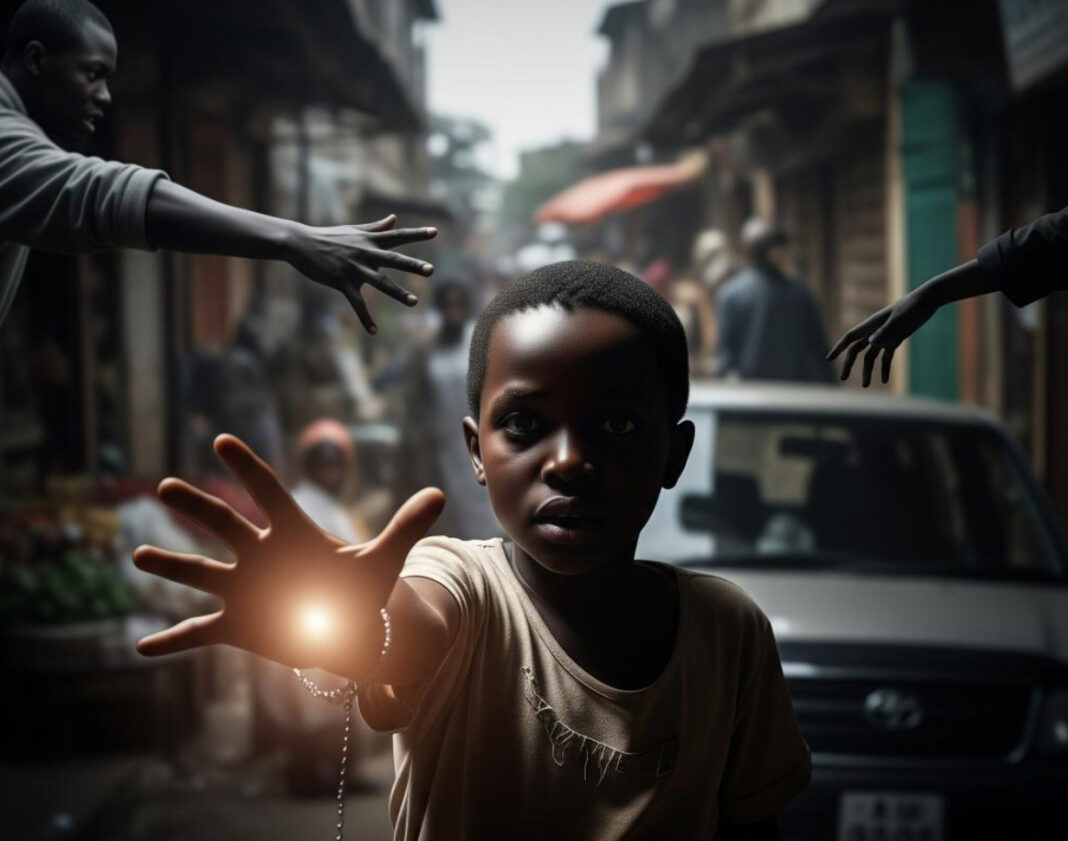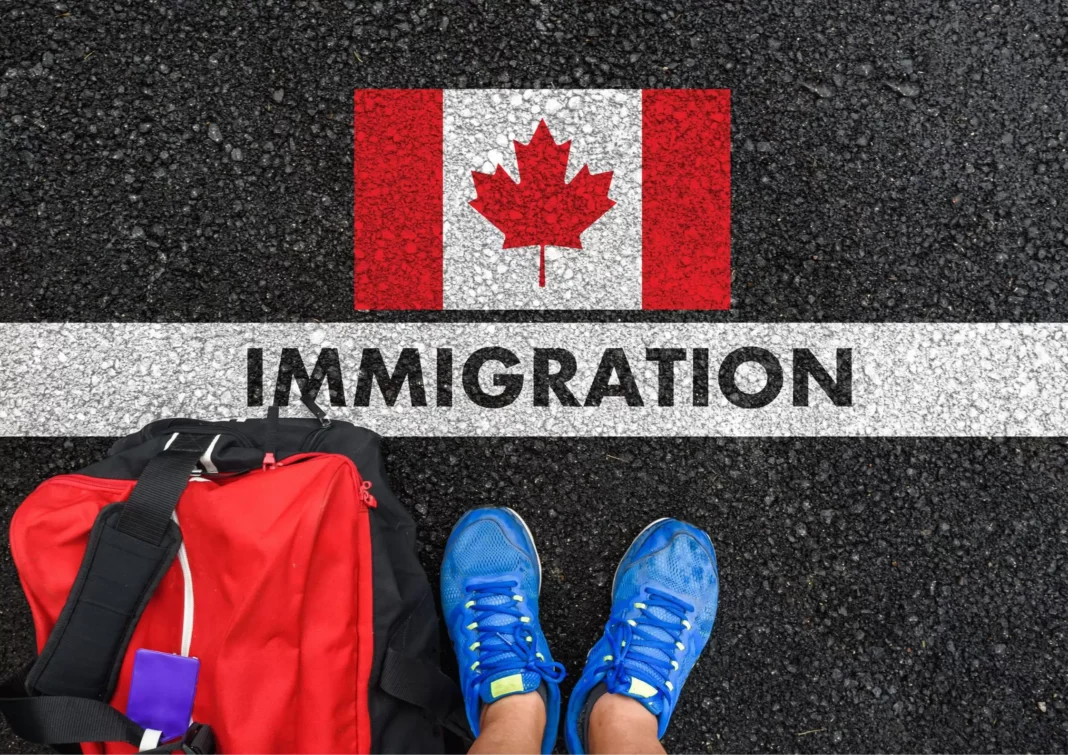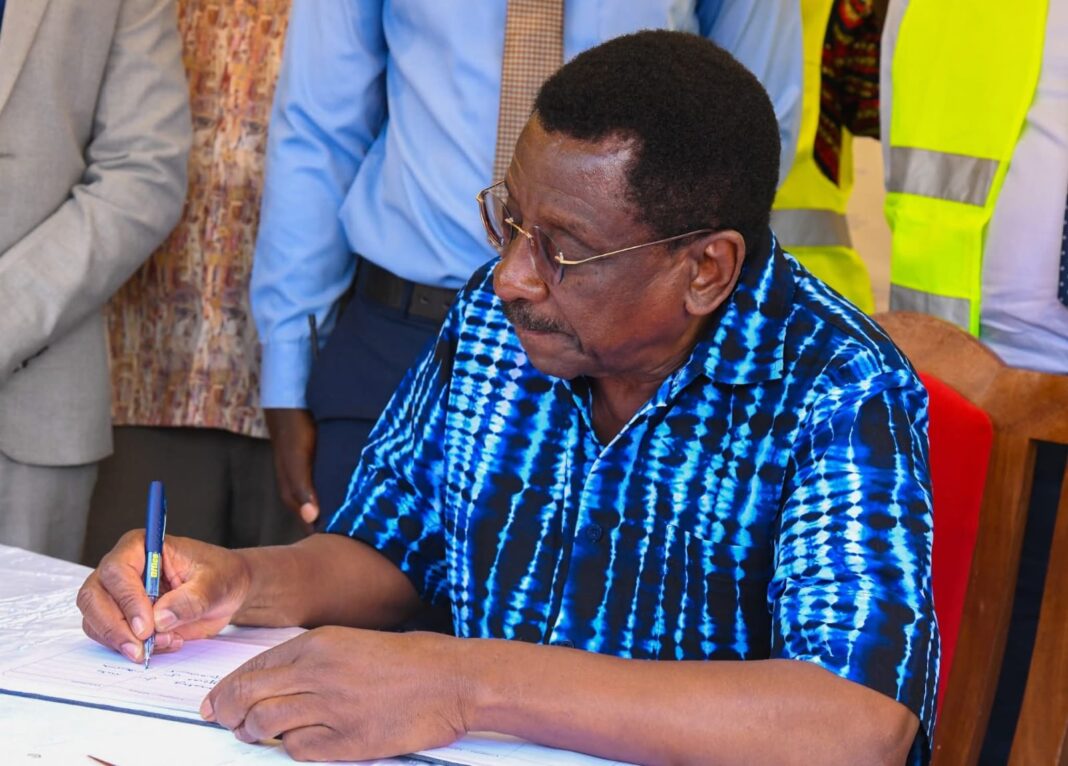A months-long undercover investigation by BBC Africa Eye has exposed a disturbing network of women facilitating child prostitution in Maai Mahiu, a key transport hub in Kenya’s Rift Valley.
The investigation reveals how children as young as 13 are being systematically exploited in the sex trade that thrives around the town’s busy trucking routes.
Maai Mahiu, located just 50 kilometers east of Nairobi, serves as a critical transport corridor for goods moving between Kenya and neighboring countries including Uganda, Rwanda, South Sudan, and the Democratic Republic of Congo.
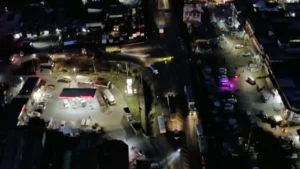
At night the town, with a population of some 50,000, comes to life and is in an area known for its sex trade
The constant flow of truck drivers through this town of 50,000 residents has created a lucrative but illegal market for sexual exploitation.
The Madams’ Operations
Two undercover investigators, posing as aspiring sex workers, spent months infiltrating the local sex trade earlier this year.
Their hidden camera footage captured conversations with women known as “madams” who openly discussed their involvement in child trafficking despite acknowledging its illegality.
One woman, identifying herself as Nyambura, was recorded explaining her methods of manipulation.
“They’re still children, so it’s easy to manipulate them by just handing them sweets,” she said, revealing she had girls as young as 13 working for her for six months.
She described operating under cover of darkness, explaining that dealing with minors required extreme secrecy.
A second madam, calling herself Cheptoo, detailed the financial arrangements of her operation.
She revealed taking 2,500 Kenyan shillings (approximately $19) from every 3,000 shillings ($23) earned by the girls.
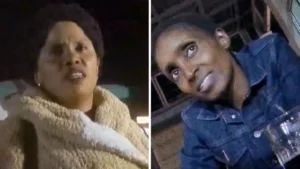
During meetings arranged by Cheptoo, investigators encountered children who said they were 13 and 15 years old.
Victims’ Testimonies
The investigation captured harrowing accounts from the children themselves.
Girls described being forced to have sex with multiple clients daily, often without protection.
One 13-year-old orphan explained she had no choice but to comply with dangerous demands, saying, “I will be chased away, and I have nowhere to run to.”
The children revealed they typically service an average of five men per day, with clients frequently forcing them into “unimaginable things” and unsafe practices.
Many reported being coerced into unprotected sex, increasing their vulnerability to HIV and other sexually transmitted infections.
Legal Framework and Enforcement Challenges
While adult prostitution exists in a legal gray area in Kenya, the exploitation of minors is clearly prohibited under national law.
The trafficking or sale of children under 18 carries sentences ranging from 10 years to life imprisonment.
Living off the earnings of prostitution, whether as a participant or facilitator, is also illegal.
Despite providing evidence to Kenyan police in March, no arrests have been made.
Authorities reported they could not trace the women and children filmed in the investigation, suggesting the network has relocated.
This outcome reflects broader challenges in prosecuting such cases, as successful convictions typically require testimony from child victims who are often too traumatized or afraid to participate in legal proceedings.
While current statistics on child sex trafficking in Kenya are limited, historical data suggests the problem is widespread.
A 2012 US State Department report estimated 30,000 children were involved in Kenya’s sex industry, though this figure is now over a decade old.
More recent regional studies have identified significant numbers of exploited children, particularly in coastal tourist areas.
The investigation also highlighted the cyclical nature of abuse that feeds this trade.
Many victims come from broken homes or have experienced previous trauma, making them vulnerable to exploitation.
The story of Michelle, who lost her parents to HIV at age 12 and was subsequently abused by multiple adults before ending up in Maai Mahiu, illustrates how vulnerable children become trapped in these networks.
A Beacon of Hope
The investigation also documented efforts to combat this exploitation.
A former sex worker known as “Baby Girl” has established a refuge in Maai Mahiu, providing shelter and skills training to girls who have escaped sexual abuse.
Her work, previously supported by USAID funding, faces uncertainty due to recent changes in US aid policy.
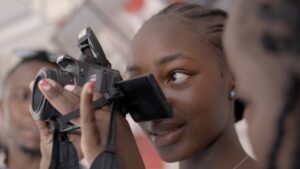
The young women in her care are learning photography and beauty skills while assisting with community outreach programs focused on HIV prevention and education.
Their stories of recovery demonstrate that escape and rehabilitation are possible, though resources for such programs remain limited.
This investigation exposes not just individual crimes but a systemic problem requiring coordinated response from law enforcement, social services, and international partners.
As long as the underlying conditions of poverty, family breakdown, and impunity persist, children in transport hubs like Maai Mahiu will remain vulnerable to exploitation by those who profit from their suffering.
The BBC’s evidence represents a crucial step in documenting these crimes, but translating documentation into justice and protection for Kenya’s most vulnerable children remains an ongoing challenge requiring sustained commitment from all levels of society.
